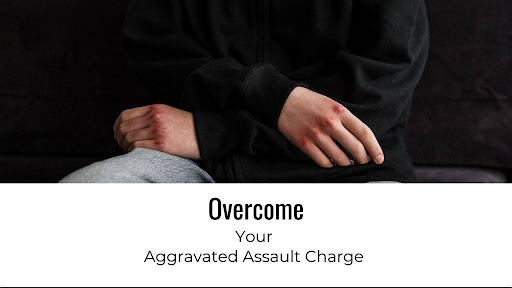 There were around 2,753 aggravated assault cases in Fort Worth, Texas, in 2018. The reasons for assault vary depending on the situation. If you have been accused of assault and are wondering how to get rid of the charges, you need a proficient attorney. They can come up with defenses to ensure their clients face minimum fines and penalties.
There were around 2,753 aggravated assault cases in Fort Worth, Texas, in 2018. The reasons for assault vary depending on the situation. If you have been accused of assault and are wondering how to get rid of the charges, you need a proficient attorney. They can come up with defenses to ensure their clients face minimum fines and penalties.
This article is going to discuss the best ways a Fort Worth attorney can defend you against an assault charge.
Best Defenses an Attorney Will Use to Defend You Against an Assault Case
Fort Worth assault lawyers are always there for their clients, helping them get out or mitigate the consequences of an assault charge. The defenses attorneys use in assault charges are mentioned below.
Insufficient Evidence
One of the primary defenses an attorney may employ in an assault case is challenging the evidence presented by the prosecution. This defense hinges on the idea that the prosecution has not presented enough credible proof to establish the defendant’s guilt beyond a reasonable doubt.
The attorney may scrutinize witness statements, forensic evidence, or any other supporting materials to identify inconsistencies or weaknesses. By casting doubt on the evidence presented, the attorney aims to create uncertainty about the defendant’s involvement in the alleged assault. This could potentially lead to an acquittal or a favorable plea deal.
Mental State
Another effective defense strategy centers on the defendant’s mental state at the time of the alleged assault. Attorneys may argue that the accused lacked the requisite intent or mental capacity to commit the crime. This could involve demonstrating that the defendant acted in self-defense. Or perhaps the accused was not aware of their actions due to mental illness or did not possess the intent to cause harm.
Consent
The defense of consent is often employed in assault cases when the accused asserts that the alleged victim willingly and knowingly agreed to the actions in question. Attorneys may argue that the interaction was consensual.
They can present evidence, such as communication records or witness statements, that supports the notion that both parties agreed to engage in the conduct. Remember, consent can be a powerful defense, particularly in cases where the nature of the relationship or prior interactions suggest mutual agreement.
Alibi
An alibi defense asserts that the accused was not present at the location where the alleged assault occurred. Attorneys may present evidence such as surveillance footage, witness statements, or documented activities. These pieces of evidence help demonstrate that the accused had a credible alibi. This defense challenges the prosecution’s timeline and casts doubt on the accused’s involvement.
Lack of Intent
The defense of lack of intent is centered on the argument that the accused did not possess the requisite mental state to commit the alleged assault. Attorneys may contend that the actions in question were accidental, unintentional, or lacked the specific intent to cause harm.
Establishing a lack of intent involves scrutinizing the circumstances surrounding the incident and presenting evidence that suggests the defendant did not willfully engage in conduct that constitutes an assault.
Defense of Others
The defense of others asserts that the accused’s actions were justified because they were protecting another person from harm. Attorneys may argue that the defendant intervened to prevent an imminent threat or attack on someone else, justifying the use of force. To successfully employ this defense, lawyers must demonstrate that the defendant reasonably believed they were acting to protect another person.
Conclusion
Assault cases involve nuanced defenses. Attorneys challenge intent, citing a lack thereof, or justify actions through the defense of others. These strategies, including proving consent or establishing alibis, highlight the crucial role of skilled legal representation in securing favorable outcomes.
Interesting Related Article: “Hiring a Personal Injury Lawyer: The Ultimate Guide“


